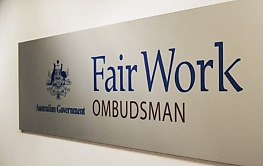
The “same job, same pay” legislation has once again provided a pay rise for Qantas-aligned workers – this time delivering annual increases for labour-hire freight workers.
Implemented by the Albanese government in December 2023, the “same job, same pay” legislation continues to be a critical tool for unions, with the Transport Workers Union (TWU) being the latest to secure pay increases for workers.
Since its introduction, Qantas has been on the receiving end of successful “same job, same pay” bargaining attempts. As previously reported on HR Leader via Australian Aviation, over 750 Qantas labour-hire cabin crew members received pay rises of up to $20,000 under the legislation.
Similarly, the Australian Services Union (ASU) struck a deal for Australian Air Express, whose wages were lifted to match those of their Qantas Freight counterparts.
At the time, ASU national secretary Emeline Gaske said: “Workers at Australian Air Express, a wholly owned Qantas subsidiary, work alongside their colleagues at Qantas Freight doing identical work every day.”
“For far too long, employment loopholes like these have been exploited by unscrupulous employers to short-change workers, and it’s time these dodgy arrangements ended.”
The TWU has now also secured an in-principle agreement with Qantas Freight, which will lead to a pay increase for labour-hire workers from Wymap and Programmed.
The union claims that the agreement will result in increases in base rates, allowances, overtime and shift penalties – bringing in annual pay increases of around $5,000, with some workers receiving up to $8,000.
“At Qantas Freight, where there are six groups of workers all doing the same job but employed under different pay and conditions, we are one step closer to fairness,” said TWU national secretary Michael Kaine.
“Soon, these brave men and women will receive long-awaited compensation in accordance with the principles set out in the court’s decision.
“These workers helped build the Spirit of Australia. Many worked decades, proud to play their part in delivering the safety and service standards that made Qantas a national icon.”
The union claimed this success was a part of their broader strategy to “reverse the decimation of aviation jobs by Qantas”.
“Qantas pioneered the strategy of paying people less to do the same job, and were a key reason these laws were necessary in the first place. These workers will now be thousands better off, as they should have been to start with,” said Kaine.
“There is much more work to be done here. Across the Qantas supply chain, workers remain under huge pressure and poor conditions as a direct result of a decade of outsourcing and job-wrecking. While we are still seeing workers under appalling pay and safety conditions at companies like Swissport, Qantas will never recover to the airline it used to be.”
When Qantas originally outsourced its ground operations to Swissport, the TWU was extremely vocal in opposition – spurring a four-year-long battle in the Federal Court, which led to 1,800 affected workers receiving $120 million in compensation.
Speaking on the current state of the aviation industry, Kaine argued that the same job, same pay’s existence exemplifies “how far gone” the sector is.
“The fact that these laws were necessary in the first place shows how out of control our aviation industry is. We must have an independent decision-maker so that this industry is stable into the future for both passengers and workers,” said Kaine.
HR Leader has reached out to Qantas for comment.
RELATED TERMS
Industrial relations is the management and evaluation of the interactions between employers, workers, and representative organisations like unions.
Kace O'Neill
Kace O'Neill is a Graduate Journalist for HR Leader. Kace studied Media Communications and Maori studies at the University of Otago, he has a passion for sports and storytelling.










